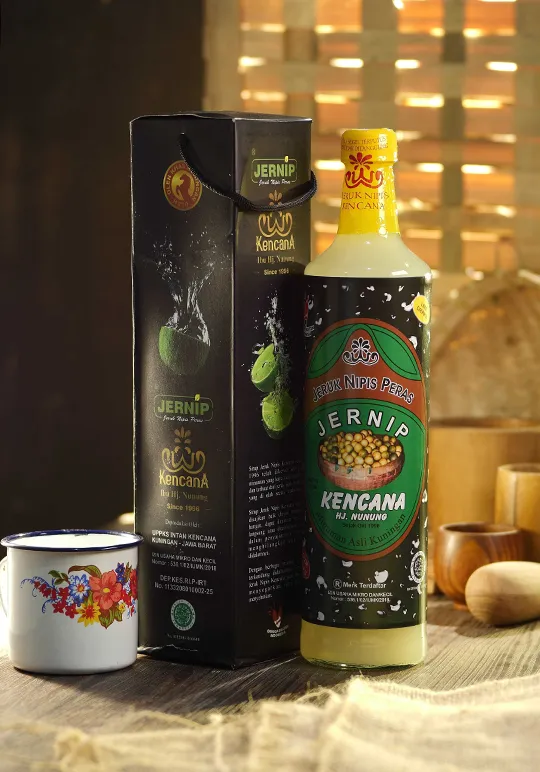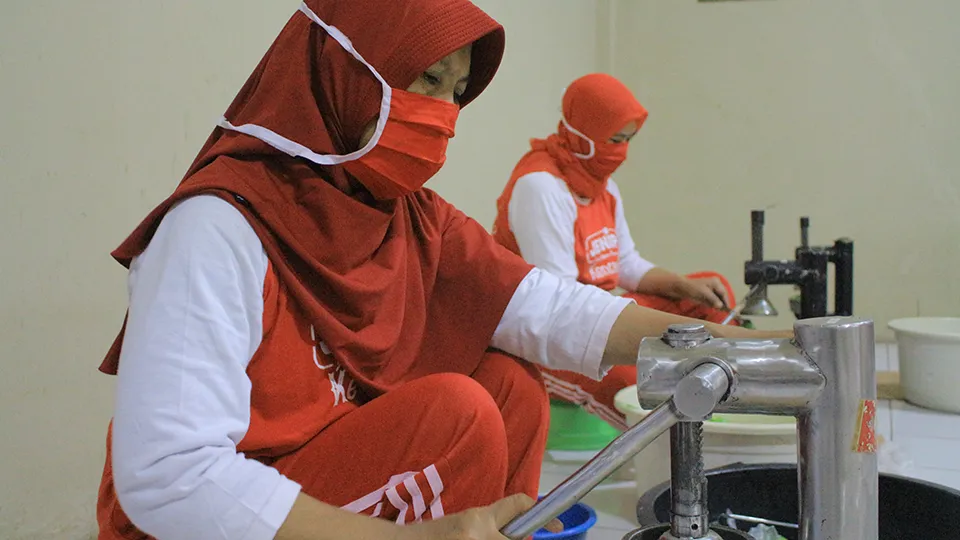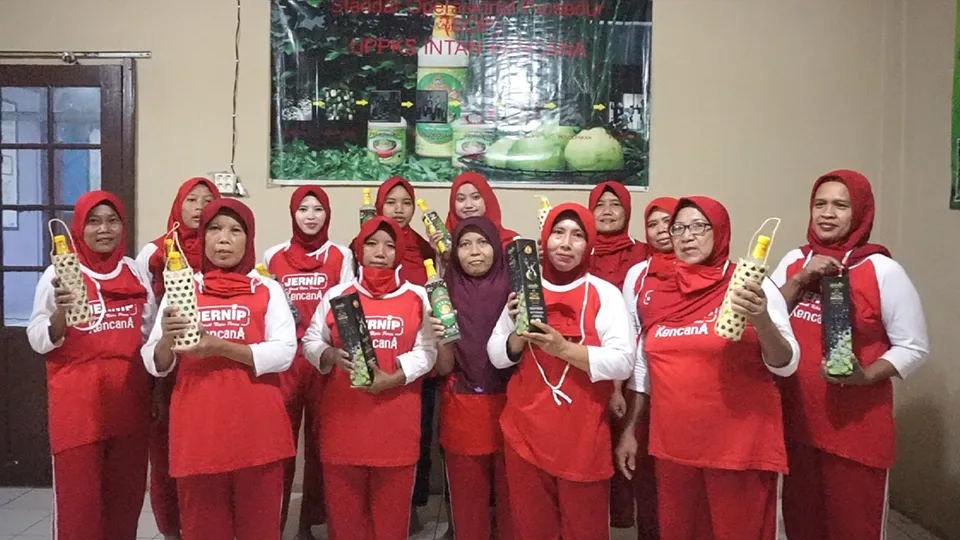
Dadan Hamdani has expanded the company’s range of lime
juice-based products. (Image: CV Putri Intan Kencana)
Like many food and beverage companies, CV Putri Intan Kencana (Jernip Kencana) is a family-run business. Established in 1996 by Indonesian businesswoman Nunung Nurhayati, the startup quickly became one of the foremost and oldest lime juice producers in Kuningan, a town on the island of Java. The lime juice drink produced by Jernip Kencana was sought-after due to its many health benefits -- namely as an antioxidant; in reducing heartburn and healing mouth ulcers, and for neutralizing nicotine and dissolving body fat; and in revitalizing the skin and maintaining stamina. Jernip Kencana employs single mothers among the local residents for the manual production of their lime juice, thus creating job opportunities, further boosting local economic activities and services, and empowering their own community.
After many years of hard work, Nunung passed on the management of the company to her son, Dadan Hamdani. Working under the “Jernip Kencana” brand, Dadan not only continues to produce the company’s famous lime juice, but is also introducing new lime juice products to the market. However, Nunung’s secret lime juice recipe, the trade secret at the heart of the company’s success, was passed down verbally to her granddaughter, Dadan’s daughter. This has presented Dadan with an unusual intellectual property (IP) challenge.
Expert advice from IPMC
Fortunately, Dadan heard about WIPO’s Intellectual Property Management Clinic (IPMC) for enterprises in Indonesia, organized jointly by the WIPO Singapore Office, WIPO’s IP for Business Division, the Directorate General of Intellectual Property (DGIP), Bank Indonesia and the ASEAN Business Advisory Council (ASEAN BAC). The IPMC is a four-month program supporting innovative small- and medium-sized enterprises (SMEs) to develop and leverage their respective IP strategies that best showcase their own visions and goals, business plans and portfolios of intangible assets. The selected companies for participation in the Clinic are shown how to better manage and use their IP through personalized, one-on-one mentorship, expert advice and training. There are also ample opportunities for network formation among participants as well
“I registered for the IPMC to develop business strategies and expand my network,” says Dadan. “I had learned that it involves intensive discussions with mentors to develop good IP strategies for companies.”

When Dadan attended the IPMC, IP experts pointed out his lack of ownership of the lime juice recipe as one of the main issues faced by Jernip Kencana. This was compounded by the fact that there were no paper-based records of the recipe, as it had been passed verbally from Nunung to her granddaughter. This meant that the company could not guarantee that its centrally important IP was safely secured and in turn, it presents a potential and significant problem for business continuity, as Nunung and her granddaughter may not be able to pass down the recipe to another family member or employee of the company due to future unforeseen circumstances.
Business and IP strategy
Over a series of mentoring sessions with IP experts, Dadan learned that the lime juice recipe will need to be treated as an important asset of the company so Jernip Kencana can remain competitive against the other local lime juice producers. He was also urged to not only know the lime juice recipe himself but to oversee the security and accessibility of the trade secret.
As a result – and after consulting with the experts at the IPMC – Dadan set to work improving his company’s IP. “I started documenting the company’s business strategy and organizing its trade secrets in a more structured manner,” he reveals. In addition, he is already planning to renew the trademark of the company’s brand which will end in November 2025.

“Through the IPMC, I have learned that my company holds so much potential that can be explored and protected with a good IP portfolio, specifically trademarks and trade secrets,” Dadan reports. “I really appreciate the input and insights provided by the experts as I believe it could benefit my company’s growth overall. I hope WIPO can make IPMC an annual program that is accessible to all Indonesian SMEs.”



